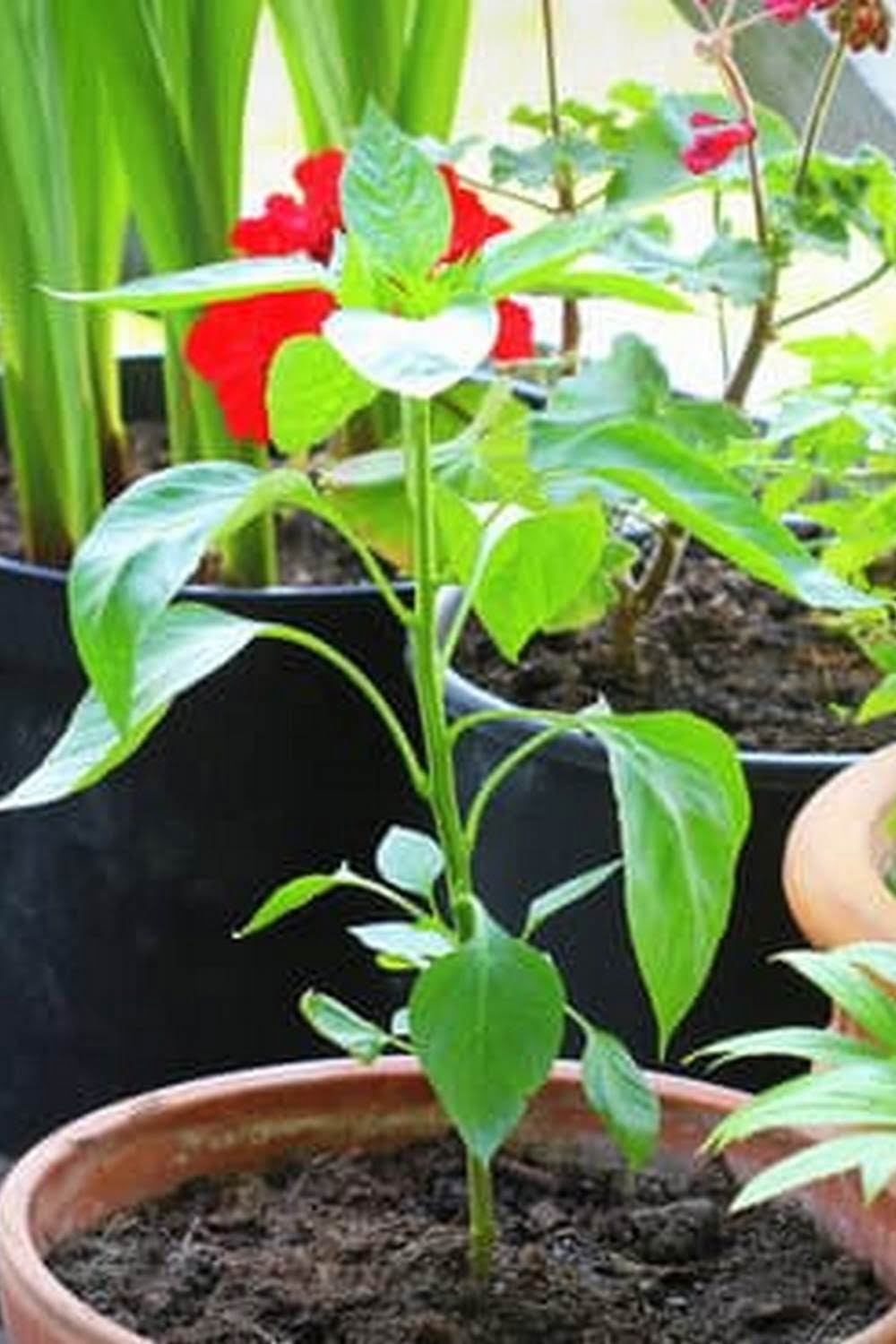Vegetable gardens can be a haven for critters, with their lush foliage and tempting produce. Gardeners often find themselves in a constant battle against these unwanted invaders, seeking a safe and effective solution to protect their beloved crops. One such solution that has gained popularity is Critter Ridder. But before implementing this product in your garden, it’s crucial to understand its safety and compatibility with vegetable gardens.
When it comes to protecting vegetable gardens from critters, finding a solution that is both safe and effective is paramount. The last thing any gardener wants is to harm their plants or compromise the quality of their harvest. This is where Critter Ridder comes into play, offering promise as a reliable repellent.
Critter Ridder is specially formulated to deter various types of critters – from squirrels and rabbits to raccoons and deer – by targeting their sense of smell, taste, and touch. This all-natural repellent contains potent ingredients like black pepper oil, piperine, and capsaicin which create an intensely unpleasant experience for critters without causing them any harm.
In this article, we will delve into the safety aspects of using Criiter Ridder in vegetable gardens. We will explore the potential risks and concerns associated with its application, assess its environmental friendliness in relation to organic gardening practices, and analyze its compatibility with different types of vegetables.
By the end of this article, you will have a better understanding of whether Critter Ridder is the right choice for safeguarding your vegetable garden from critters or if there are alternative solutions worth considering.
Understanding Critter Ridder
Critter Ridder is a popular repellent used to protect vegetable gardens from unwanted critters. Understanding what Critter Ridder is and how it works is essential for gardeners looking for a safe and effective solution to keep their plants safe.
Critter Ridder is a natural repellent that deters various animals, including squirrels, raccoons, deer, and rabbits, from entering the garden. It contains active ingredients such as capsicum oil (pepper extract), piperine (black pepper extract), and thyme oil. These natural substances work together to create an unpleasant taste and smell that animals find repulsive, effectively keeping them away from the vegetable garden.
When applied to the garden, Critter Ridder forms a protective barrier around the plants. The strong scent and taste deter animals from coming near or feeding on the vegetation. This repellent works by targeting the animal’s sensory receptors responsible for detecting odors and tastes, causing discomfort or irritation without causing harm.
Gardeners can choose between different forms of Critter Ridder depending on their specific needs. It is available in granules, ready-to-use sprays, and concentrated formulas that can be mixed with water for application. Some products also offer added benefits such as rain resistance or extended protection.
To ensure optimal effectiveness of Critter Ridder in a vegetable garden setting, it is important to follow the application instructions provided by the manufacturer. This may include specific guidelines on how frequently to reapply and how much product to use per square footage of the garden area.
In summary, Critter Ridder is a natural repellent that uses ingredients like capsicum oil and thyme oil to create an unpleasant taste and smell for animals, keeping them away from vegetable gardens without causing harm. Its versatile forms make it convenient for various application methods, providing an efficient solution to protect crops from critters.
Assessing the Safety of Critter Ridder
Critter Ridder is widely recognized as an effective repellent for keeping critters away from gardens, including vegetable gardens. However, before using any product in close proximity to where food is grown, it is important to assess its safety. In this section, we will delve into some potential risks and concerns associated with using Critter Ridder in vegetable gardens.
Potential Health Risks
One of the main concerns when using any pesticide or repellent is the potential health risks it may pose to humans or animals. Critter Ridder contains active ingredients such as pepper oils, garlic oil, and black pepper that create an intense sensory irritation for critters but are generally considered safe for humans and animals.
However, it is important to note that some individuals may be more sensitive to these ingredients than others. If you have allergies or respiratory conditions such as asthma, it is recommended to use caution and avoid direct contact with Critter Ridder.
Additionally, it is crucial to follow the instructions provided by the manufacturer regarding application rates and safety precautions. For example, wearing gloves while handling the product and washing hands thoroughly after use can help minimize any potential risks.
Possible Impact on Beneficial Animals
While Critter Ridder aims to repel unwanted critters from your garden, there is a possibility that it may also have an impact on beneficial animals such as pollinators or earthworms. Although studies on this particular aspect are limited, it is advisable to exercise caution when applying Critter Ridder near flowering plants or areas where pollinators frequent.
To minimize any unintended impact on beneficial animals, consider applying the product specifically around your vegetable plants or targeted areas rather than blanket spraying your entire garden.
Furthermore, integrating alternative pest control methods, such as companion planting or creating habitats for beneficial insects, can help maintain a balance in your garden and reduce the reliance on repellents like Critter Ridder.
Chemical Persistence and Soil Contamination
Another concern with using any pest repellent in vegetable gardens is the potential persistence of the chemicals in the environment and their impact on soil quality. Critter Ridder is formulated to be biodegradable, which means it breaks down naturally over time. However, it is advisable to apply the product only as needed and avoid excessive use to prevent unnecessary accumulation of the ingredients in your soil.
To further minimize any potential soil contamination, consider applying Critter Ridder around the perimeter of your garden rather than directly on or near your plant beds. This approach can create a barrier that deters critters while reducing direct contact between the product and your edible plants.
By considering these potential risks and taking appropriate precautions, you can safely incorporate Critter Ridder into your vegetable garden pest control strategy while minimizing any negative impacts on yourself, beneficial animals, and soil quality.
Environmental Friendliness
Critter Ridder is not only effective in repelling critters from vegetable gardens, but it is also environmentally friendly and compatible with organic gardening practices. This section will delve into the eco-friendly nature of Critter Ridder and how it aligns with the principles of organic gardening.
One of the reasons why Critter Ridder is considered eco-friendly is because of its natural ingredients. The product primarily contains active ingredients such as black pepper, piperine, and capsaicin, which are derived from plants. These ingredients have been known to irritate animals’ senses of smell and taste without causing them any harm. Unlike chemical-based repellents, Critter Ridder does not pose a threat to wildlife or contaminate the environment.
Furthermore, Critter Ridder does not leave any harmful residues on vegetables or in the soil. This is especially important for organic gardeners who value their produce’s purity and strive to avoid synthetic chemicals. Gardeners can confidently use Critter Ridder knowing that it won’t compromise the organic integrity of their crops.
In addition to being eco-friendly, Critter Ridder also supports other sustainable gardening practices such as integrated pest management (IPM). IPM focuses on using a combination of strategies to control pests while minimizing negative impacts on human health and the environment. By using Critter Ridder alongside other IPM techniques like physical barriers or companion planting, gardeners can create a holistic approach that effectively protects their vegetable gardens while reducing reliance on harmful chemicals.
| Eco-Friendly Nature | Compatibility with Organic Gardening Practices |
|---|---|
| Contains natural ingredients derived from plants | Does not leave harmful residues on vegetables or in soil |
| Does not harm wildlife or contaminate the environment | Supports integrated pest management (IPM) |
Vegetable Garden Compatibility
When it comes to protecting vegetable gardens from critters, it is crucial to assess the compatibility of Critter Ridder with different types of vegetables. While the repellent is generally safe for use in vegetable gardens, there are a few exceptions and precautions to keep in mind.
Most leafy greens, such as lettuce, kale, spinach, and Swiss chard, are compatible with Critter Ridder and can be safely grown alongside its application. These vegetables are less appealing to critters due to their strong aroma and distinct taste.
Root vegetables like carrots, radishes, and potatoes are also typically resistant to critter damage when treated with Critter Ridder. The active ingredients in this repellent create an unpleasant taste and odor for pests that would otherwise be attracted to these underground crops.
However, there are certain exceptions where caution should be exercised when using Critter Ridder. Some sensitive plants, such as tomatoes and peppers, may have varying levels of sensitivity to the ingredients in the product. It is recommended to perform a small test patch on a few leaves before applying it extensively on these vegetables.
Additionally, herbs like basil and cilantro can sometimes experience some wilting or discoloration when exposed to Critter Ridder. To mitigate any potential damage, it is advisable to spray lightly or avoid spraying directly on these plants.
Overall, by conducting a careful examination of the specific vegetables being cultivated in your garden and taking necessary precautions for sensitive plants, Critter Ridder can be a safe solution for protecting your vegetable garden from unwanted critters.
Application Methods
Critter Ridder, a popular repellent for critters in vegetable gardens, offers various application methods to maximize its effectiveness. Whether you have a small raised bed or a larger garden plot, these methods can help ensure that your vegetable garden remains protected.
One common and straightforward method is to sprinkle Critter Ridder granules around the perimeter of your vegetable garden. This creates a barrier that deters critters from entering. Be sure to follow the package instructions for the recommended amount of granules per square foot. Regular reapplication may be necessary, especially after rain or irrigation.
For more targeted protection, Critter Ridder can also be applied directly to plants. Utilize a handheld sprayer or spray bottle to apply the liquid formula on and around vulnerable plants. Take care not to saturate the foliage excessively, as this may interfere with the plants’ growth. Remember to reapply after rainfall or as directed by the manufacturer.
If you prefer an even more seamless approach, consider using Critter Ridder’s ready-to-use shaker containers. These allow for easy and controlled distribution of granules without any additional tools. Just shake the container gently over your desired areas, ensuring an even spread from within one foot of your plantings.
It is important to note that regardless of which application method you choose, regular maintenance is crucial for optimal effectiveness. With outdoor exposure and weather conditions, reapplying Critter Ridder every few weeks or as instructed will help maintain its potency throughout the growing season.
By utilizing these application methods effectively, you can safeguard your beloved vegetable garden from critters without compromising its productivity or safety.
User Experiences and Testimonials
Many gardeners have turned to Critter Ridder as a solution to protect their precious vegetable gardens from critters. By sharing their experiences and testimonials, we can gain valuable insights into the effectiveness and safety of this product.
Positive Experiences:
- Sarah, a gardener from California, found Critter Ridder to be extremely effective in keeping away rabbits from her lettuce patch. She applied the granules around the perimeter of her garden as directed, and within a few days, noticed a significant decrease in rabbit activity. Sarah was delighted with the results and expressed her satisfaction with how well Critter Ridder worked for her.
- John, an organic gardener from Oregon, shared his positive experience using Critter Ridder to deter deer from his tomato plants. He chose Critter Ridder because of its eco-friendly nature and compatibility with organic gardening practices. John sprayed the liquid formula on his plants and noticed that the deer no longer showed any interest in them. He appreciated that Critter Ridder provided an effective solution without compromising his commitment to environmentally-friendly gardening.
Negative Experiences:
- Lisa, a gardener residing in New York City, had an unfortunate experience with Critter Ridder when she used it to deter squirrels from her vegetable garden. Despite diligently following the application instructions, she found that the squirrels were undeterred by the product. Lisa expressed disappointment at the lack of effectiveness and felt it did not live up to its claims.
While these are just a few examples of user experiences with Critter Ridder, it is important to note that individual results may vary depending on factors such as type of critters present, environmental conditions, and proper application techniques. It is recommended to read multiple testimonials and reviews before deciding if Critter Ridder is the right solution for your vegetable garden.
Alternatives and Complementary Solutions
Companion Planting: A Natural Approach to Protecting Vegetable Gardens
Companion planting is a tried and true method for protecting vegetable gardens from critters. By strategically planting certain combinations of plants, you can deter pests and attract beneficial insects that will help keep your garden thriving. One popular example of companion planting is the combination of marigolds and tomatoes. Marigolds emit a scent that repels nematodes, while also attracting pollinators like bees. This not only protects your tomato plants but also promotes healthy growth and higher yields.
Another effective companion plant is basil, which can be planted alongside many different vegetables such as peppers or tomatoes. Basil produces oils that deter pests, including aphids and tomato hornworms. In addition to its pest-repellent properties, basil improves the flavor of nearby vegetables. The strong aroma can confuse pests and discourage them from targeting your prized crops.
Physical Barriers: Creating a Fortress for Your Vegetable Garden
For those who prefer a more direct approach to protecting their vegetable garden, physical barriers can be highly effective in keeping critters at bay. Installing fencing around your garden is an excellent way to prevent larger animals such as deer or rabbits from accessing your precious plants. Make sure the fence is buried at least six inches below ground level to prevent burrowing animals from digging their way in.
To protect against smaller critters like slugs or snails, consider using copper tape or collars around the base of individual plants. Copper reacts with the slime these pests produce, creating a mild electrical shock that repels them without causing harm. Another simple yet effective barrier technique is placing netting over susceptible crops like strawberries or lettuce to prevent birds from feasting on your harvest.
Integrated Pest Management (IPM): A Holistic Approach to Garden Protection
In addition to specific companion plants and physical barriers, adopting an integrated pest management (IPM) approach can be highly beneficial in safeguarding your vegetable garden. IPM focuses on prevention, monitoring, and control strategies to minimize damage from pests while minimizing the use of harmful chemicals.
Regularly inspect your plants for any signs of pests or disease and take action immediately. This could involve handpicking pests, using insecticidal soap sprays, or introducing beneficial insects like ladybugs. Additionally, practicing good garden hygiene by removing plant debris and weeds can help eliminate hiding places for pests and reduce the risk of infestations.
Conclusion
In conclusion, the use of Critter Ridder in vegetable gardens can be a safe and effective solution to protect against critters. Throughout this article, we have discussed the ingredients and working mechanism of Critter Ridder, as well as its potential risks and concerns. However, it is important to note that Critter Ridder is generally considered safe for use in vegetable gardens.
One of the significant advantages of Critter Ridder is its environmental friendliness, making it compatible with organic gardening practices. It does not contain harmful chemicals that can harm humans or wildlife. Therefore, using Critter Ridder aligns with the principles of sustainable gardening while effectively repelling critters.
When it comes to vegetable garden compatibility, most vegetables can be safely protected using Critter Ridder. However, it is essential to follow the specific instructions for each plant type and take any necessary precautions. Some plants may require alternative methods or additional barriers for optimal protection.
While individual experiences may vary, user testimonials have shown a mix of positive and negative feedback regarding the effectiveness of Critter Ridder in vegetable gardens. It is crucial to consider factors such as garden size, severity of critter infestation, and proper application techniques when evaluating these experiences.
Frequently Asked Questions
Will Critter Ridder harm plants?
Critter Ridder is specifically designed to be safe for plants and will not harm them when used properly. It is a natural and non-toxic animal repellent that works by creating an unpleasant taste and smell for animals, deterring them from damaging plants or entering certain areas.
The formula typically contains ingredients such as hot peppers, garlic, and other natural deterrents that animals find repulsive but do not pose any harm to plants or vegetation. When applied according to the instructions, Critter Ridder can effectively protect your plants without causing any damage.
How do you make animal repellent for vegetable gardens?
To make an effective animal repellent for vegetable gardens, you can consider using homemade recipes with natural ingredients that act as deterrents to common garden pests. While there are various recipes available, one option is to combine water, chopped garlic cloves, and hot pepper sauce in a spray bottle. Shake the mixture well and then spray it on the leaves of your vegetable plants.
The strong smell of garlic and the spiciness of hot pepper sauce can help repel animals like rabbits, deer, or squirrels who might have a fondness for your vegetables. Remember to reapply after rain or every couple of weeks for continued effectiveness.
What does Critter Ridder get rid of?
Critter Ridder is designed to get rid of a range of common nuisance animals that may cause damage to your property or garden. Some typical critters that this product is effective against include raccoons, squirrels, rabbits, deer, skunks, groundhogs (woodchucks), and chipmunks among others.
It works by creating an unappealing sensory experience through its combination of taste and smell repellents without causing harm to the animals themselves or leaving any toxic residue behind. Whether you’re dealing with unwanted visitors in your garden digging up newly planted veggies or exploring garbage cans around your house, Critter Ridder provides a humane solution to deter these pests from causing trouble on your property.

If you’re looking to get into vegetable gardening, or are just looking for some tips on how to make your current garden better, then you’ve come to the right place! My name is Ethel and I have been gardening for years. In this blog, I’m going to share with you some of my best tips on how to create a successful vegetable garden.





